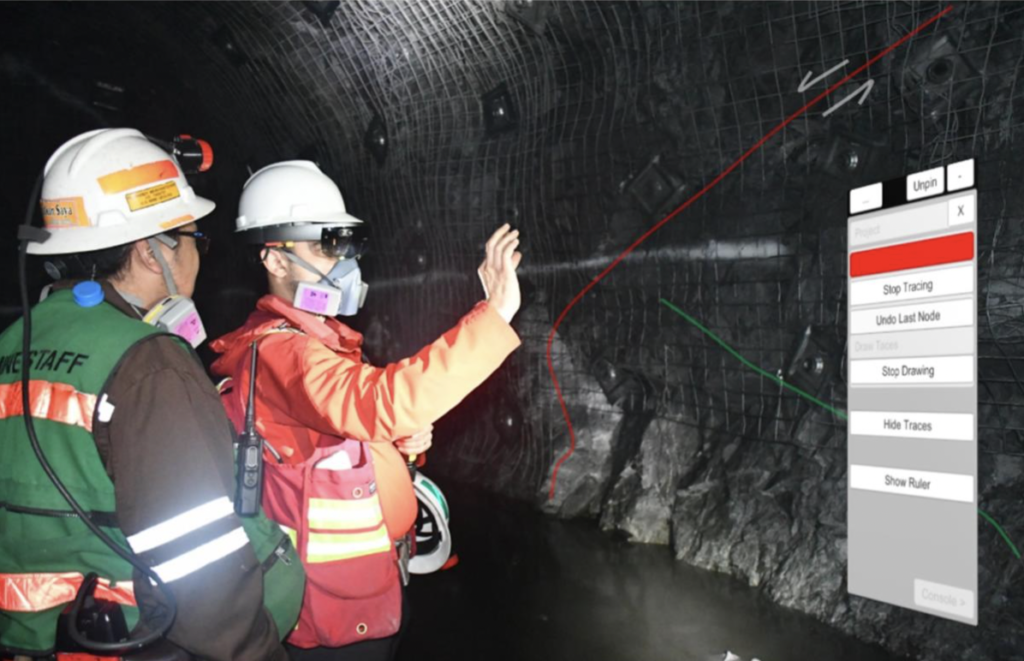Building momentum for innovative engineering solutions

In the real world, breakthrough innovations seldom happen by chance or luck; they are best built steadily from years of experience and structured collaboration, according to global engineers and scientists SRK Consulting.
In today’s digital world, there are opportunities aplenty for apps, gadgets and clever inventions. The real challenge, however, is to build continuous improvement into a company’s workstream – so that staff and customers alike can build on experience and past achievements for a smarter future. According to SRK Consulting managing director Vis Reddy, the company has for many years been recognised for its technical innovation; now it is taking the process up a notch.
“As a global network, SRK has always believed in the power of collaboration – especially across disciplines and global regions – and the digital era has offered tools to enhance this,” said Reddy. “With the organisation now spread across 45 offices world-wide, it is not always easy to leverage the full extent of all the experience on offer.”
Since about six years ago, the company has been actively consolidating its efforts to further entrench innovation through systematic collaboration across practices and countries. In South Africa, this includes regular innovation workshops, which have in recent years embraced online communication. These platforms have also allowed greater international engagement, networking, sharing ideas and innovations across continents.
“Many of these discussions focus on the value opportunities in gathering, analysing and sharing data across the organisation,” he said. “Projects that we engage in often generate vast amounts of data to be processed, but the sharing of results and lessons learnt can be of great benefit to colleagues in similar fields in other offices.”
He highlighted the increasing pace of work allowed by ever-improving software and computer power, and that client expectations were continually evolving to expect results faster. The speed in
itself, though, was only one benefit; the more important aspect of automated processes, for instance, was providing more time and better data on which analysis could be conducted.
Tracey Drew, a senior environmental scientist and the head of the company’s Data Services Department, also providing strategic innovation support, noted that a company’s success in innovation could be reflected in its ability to solve traditional problems, and to accelerate business activities, processes and competencies. The way that technology is embraced should also allow change in the ways people work, and in the opportunities, they have for providing new solutions.
“Among the forums we use to share ideas and promote innovation in our daily working lives are our lunch time presentation events,” said Drew. “This is an informal lunch-time event where a presenter shares their useful experience, invention or idea as a learning opportunity for others – inspiring comment and collaboration.”
According to Xanthe Adams, the Principal Engineer who pioneered the innovation workshops at SRK and Digital Transformation Specialist: water sector, many of our innovations that the company’s engineers and scientists develop make working processes more productive, while the best ones help implement or even improve good industry practice.
“Data science is an increasingly important foundation for much of our work, allowing us to develop effective and novel solutions on which clients can rely,” said Adams. “Using modern sensors to help generate more accurate and reliable data, for instance, allows us to move onto the next step of developing smart solutions with better results.”
Water monitoring is one field which can contribute significantly to South Africa’s water challenges, and technology is opening doors for new ways to manage and protect this valuable resource. She said the process of remote water monitoring is well developed, and data from sensors can now be streamed wirelessly for real time analysis.
“Real innovation comes by harnessing the Internet-of-Things in a complete system that addresses a client’s water risk,” she said. “If a data source and pre-designed algorithms can be applied to a real-time chemical analysis of a water stream, for instance, it could be possible to alert the owner to the actual source of unacceptable levels of certain chemicals.”
Larger volumes of accurate data – or ‘big data’ – are also becoming vital where historical data may no longer be a reliable guide for the future. With climate change, for example, it is no longer enough to rely on the past century of rainfall data to determine bloodlines when designing civil or other structures close to natural water courses, said Reddy.
“When determining the appropriate design parameters for decades into the future, we are needing to rely far more on the climate and rainfall patterns from the last five years to identify new trends,” he said. “This means we need the necessary tools to extract every clue we can from the more recent data, which often requires new methods and technologies.”
SRK’s reputation for quality studies, integrity and independent advice have laid a foundation to collaborate closely with clients on pushing technological boundaries, said Drew.
“Innovation is most effective when it can underpin or accompany a practical solution for a client or industry,” she said. “As SRK continues to build its own in-house innovation channels and forums, we foresee even more constructive contributions both to clients’ actual projects and to broader industry practice.”
More News
{{ commodity.name }}
{{ post.title }}
{{ post.date }}




Comments